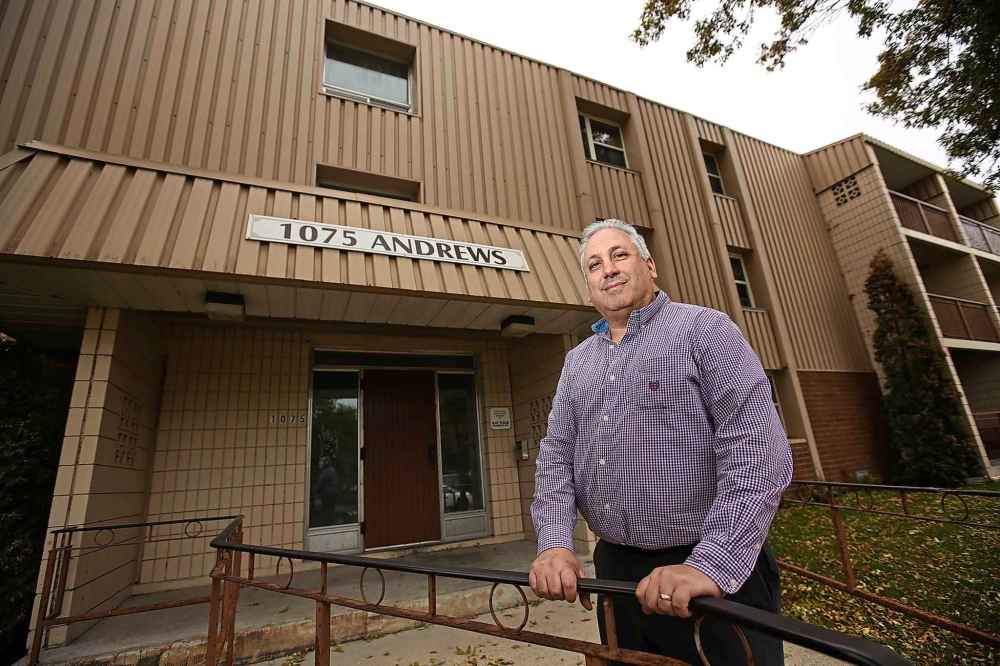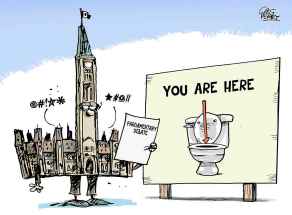You might need your own joint to enjoy legal weed, rental property owners say
Read this article for free:
or
Already have an account? Log in here »
To continue reading, please subscribe:
Monthly Digital Subscription
$0 for the first 4 weeks*
- Enjoy unlimited reading on winnipegfreepress.com
- Read the E-Edition, our digital replica newspaper
- Access News Break, our award-winning app
- Play interactive puzzles
*No charge for 4 weeks then price increases to the regular rate of $19.00 plus GST every four weeks. Offer available to new and qualified returning subscribers only. Cancel any time.
Monthly Digital Subscription
$4.75/week*
- Enjoy unlimited reading on winnipegfreepress.com
- Read the E-Edition, our digital replica newspaper
- Access News Break, our award-winning app
- Play interactive puzzles
*Billed as $19 plus GST every four weeks. Cancel any time.
To continue reading, please subscribe:
Add Free Press access to your Brandon Sun subscription for only an additional
$1 for the first 4 weeks*
*Your next subscription payment will increase by $1.00 and you will be charged $16.99 plus GST for four weeks. After four weeks, your payment will increase to $23.99 plus GST every four weeks.
Read unlimited articles for free today:
or
Already have an account? Log in here »
Hey there, time traveller!
This article was published 01/10/2018 (2630 days ago), so information in it may no longer be current.
When recreational cannabis use becomes legal across the country in just over two weeks, rental-property tenants in Manitoba who want to partake may have to rely on friends who own their own homes.
That’s because of a near-total ban on cannabis use outdoors, and landlords concerned about adverse effects on other tenants.
“It’s not the marijuana that’s the problem, it’s the effect of the second-hand smoke,” said Avrom Charach, who’s been looking into cannabis rules on behalf of the Professional Property Managers’ Association, a group representing landlords across the province.

“We want to get rid of the possibility of immediate, detrimental effects on neighbours.”
The Free Press surveyed landlords, universities and government departments to understand where Winnipeggers will and won’t be able to legally use cannabis starting Oct. 17.
At home
Winnipeggers who rent non-smoking apartments can expect little to change, but many landlords aren’t quite sure what to do about medicinal users dabbling in edibles.
“We’re not excessively worried in Manitoba,” Charach said, because the province has outright banned home cultivation, avoiding concerns about damp, overheated conditions that could cause property damage.
His main concern is the potential for second-hand smoke travelling from one rental unit to another, affecting other residents — crane operators or first responders losing their jobs because they’ve ingested trace amounts that show up in drug tests, for example.
Charach’s company, Kay Four, says it will follow existing smoking rules, which allow renters to smoke any legal substance inside units that are not classified as smoke-free, a policy echoed by Garamark Property Management, Edison Properties and other PPMA members.
A look at other jurisdictions
British Columbians will allow people to smoke pot in public places where tobacco smoking and vaping are permitted. It will be banned in vehicles and in areas frequented by children, including beaches, parks and playgrounds.
Ontario, Newfoundland and Labrador, Yukon will also only allow pot use in private residences, including backyards. Adults can only possess a maximum of 30 grams of recreational marijuana in public.
New Brunswick plans to require users to lock away their marijuana when it’s in their home.
Quebec is also banning home cultivation.
With files from The Canadian Press
Astroid Management is banning all smoking and vaping, including on balconies and patios, but it doesn’t have a policy on edibles — and neither do other firms.
“Towers Realty Group is still working on developing our internal policies,” wrote spokesman Jason van Rooy. S.A.M. Management, which administers non-profit buildings, will remain smoke-free, but did not have an answer about edibles.
Charach notes that courts and tribunals have approached cannabis in an effort to balance one tenant’s rights and the effect on neighbours. For example, a British Columbia court ruled in 2003 that while medicinal users can have a permit to use cannabis, they don’t have a right to smoke it if it unreasonably interferes with other tenants in a building.
That case focused on second-hand smoke and didn’t consider oils or edibles, but Charach expects that’s how many medicinal patients will proceed. He also said landlords might find specific compromises, such as how no-pets buildings have welcomed service animals who are trained and hypoallergenic.
He said it’s always possible someone will challenge the home-grow ban in court on the basis that it’s an unreasonable restriction.
On campuses
Two of Winnipeg’s English-speaking universities say they’re studying cannabis laws as they evolve, but they’re banning all recreational use on their campuses and in their dorms. The University of Manitoba and the University of Winnipeg make case-by-case exemptions for medicinal use, including smoking, vaping and edibles.
Red River College has a similar policy, though it explicitly requires medical documentation and an agreement on where and when the student or staff members can use cannabis on campus.
Université de Saint-Boniface says it outright bans all cannabis use on campus and in dorms, including for medical use.
Visiting grandma
Under Manitoba’s laws, group homes — such as seniors residences — can offer designated smoking rooms, as can hotels, though few seem to be taking this option.
Canadian Legion Gardens allows its tenants to smoke in their rooms, but will not open any common areas to cannabis smoking or vaping.
Revera, one of the country’s largest retirement-centre chains is still crafting its policy, hoping to “strike a balance between the right of our residents to be autonomous while offering appropriate protections for the health and safety of our residents and employees,” spokesman Larry Roberts wrote.
The Free Press did not receive a response from the Chartwell chain, Donwood Manor or Governor’s Walk.
While smoking is banned at hospitals, exceptions for palliative-care units and end-of-life hospices continue.
The Winnipeg Regional Health Authority says it’s developing a medical pot policy, but “accommodates medical cannabis on a case-by-case basis, often in the form of oils or edibles,” spokeswoman Amy McGuiness said.
Outdoors
Provincial legislation introduced in March bans smoking or vaporizing cannabis in any outdoor public space, including sidewalks, parking lots, parks, sports venues, patios and schools. Breaching the rules means the same fine as cigarette smoking, escalating from $100 to $1,000.
And while homeowners can toke in their backyards, renters are at the mercy of their landlords. After introducing Bill 25, former Manitoba health minister Kelvin Goertzen told reporters that renters in non-smoking buildings better find pals with private property.
“It’s difficult to put in place legislation that deals with everybody who may not have property or may not have friends or associates,” Goertzen said at the time.
“This is about a common interest, a common interest in safety and a common interest in health.”
Charach said Manitoba ought to allow some businesses to allow cannabis smoking, because renters with no other options will simply contravene their landlords’ policies.
“We, and others, are pushing back. Why not allow places to smoke in public? Why not a lounge? At this point our Manitoba government is not keen on that,” he said.
dylan.robertson@freepress.mb.ca
Cannabis can be smoked in shut-off car: province

Manitobans can smoke pot in their cars as long as they don’t drive, the Free Press has learned — and probably only if they stay in the backseat.
Bill 25 makes it clear that can’t have cannabis on their person “whether or not the vehicle is in motion” but this only applies “on a highway.”
In a statement, the province explained Manitobans can’t ever use cannabis in the driver’s seat.
“Cannabis can be used in a vehicle if it is parked off-highway and shut off,” the province wrote in an unnamed Monday statement.
“However, anyone who consumes cannabis in this manner and then either exercises care and control of the vehicle, by sitting in the driver’s seat or creating the risk of putting the vehicle in motion, or decides to start the vehicle and drive, could face provincial and criminal consequences for drug-impaired driving.”
Winnipeg landlord Avrom Charach said some renters might resort to this option, because of the lack of lounges or public spaces to consume cannabis.
The bill also says Manitobans can only transport marijuana when it’s inaccessible to passengers, like in the trunk or the back of an RV. There’s an exception for taxis and bus trips, when the cannabis has to be concealed in one’s personal effects.
—Dylan Robertson









